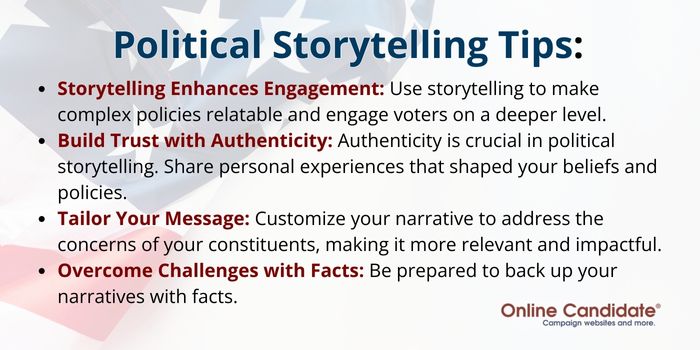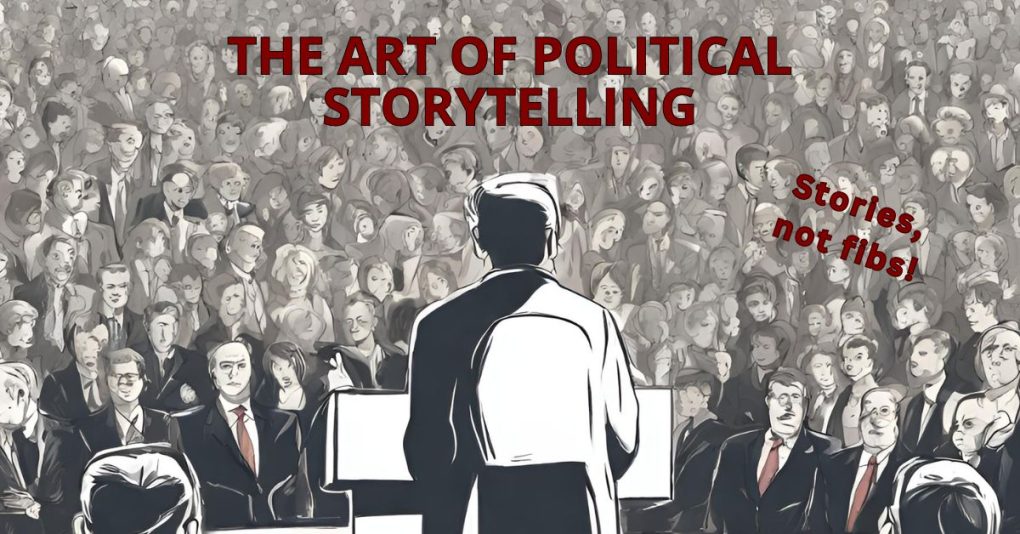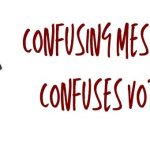If this is your first campaign for political office, there’s one tool you absolutely need to use: political storytelling.
A smart politician knows that most voters remember stories and narratives, not facts and figures. Connections are not made by listing policies. Instead, great messaging is delivered through effective political storytelling techniques.
In this article, we explain how the art of storytelling can help set your vision and enhance your campaign.
The Benefits of Storytelling in Your Campaign
Let’s examine how an interesting narrative might enhance your campaign’s strategies.
- Enhanced Voter Engagement: By using storytelling, you can more deeply engage voters by making complex policies more vivid and easier to understand.
- Building Trust and Credibility: Effective storytelling helps establish trust and credibility, as personal stories often resonate more than abstract policies.
- Differentiation from Opponents: A good story and anecdotes can help separate you from your opponents both with voters and the media.
- Emotional Resonance: Want to win more support and loyalty? Good storytelling techniques tap into the emotions of the electorate.
- Memorability: A well-told story will leave your message in voters’ minds long after they’ve heard it.
- Greater Shareability: Compelling narratives are more likely to be shared on social media, expanding your campaign’s reach organically.
The Why and How of Storytelling in Political Campaigns
So, why does storytelling work in political campaigns? It’s rooted in human psychology. Stories stick in our minds because they create real emotion and bonds between the teller and the listener. Research shows that narratives activate multiple areas of the brain, increasing retention and emotional connection.
Consider Barack Obama’s 2008 “Yes We Can” slogan. The hope and change narrative connected with millions of supporters.
Historically, political leaders who mastered storytelling techniques often swayed the public. Franklin D. Roosevelt’s fireside chats during the Great Depression are a classic example. They were radio speeches, but more. The chats made suffering Americans feel like he was actually speaking with them and sharing in their struggles.
Successful politicians often strike a balance between facts and emotion. For example, Alexandria Ocasio-Cortez often shares her background as a waitress prior to becoming a member of Congress. She combines her personal background with policy proposals. Her stories reflect the common struggles of many of her working-class constituents. Because of this, many see in her a reflection of their own experiences.
Ronald Reagan was well known for his stories and anecdotes. He often referenced the idea of America as a “shining city upon a hill.” Derived from a speech by John Winthrop, this phrase emphasized Reagan’s belief in American exceptionalism and the country’s potential to be a beacon of hope and freedom for the world. With this, Reagan painted a picture to voters that the United States was a unique and exceptional nation.

Crafting Your Narrative Through Authenticity
Any story you tell needs to be authentic. Voters can smell insincerity a mile away, and the media may check into any claims you make. Reflect on your experiences and how they shaped your beliefs and policies. The most powerful campaign narratives are rooted in truth, personal growth, and relatable struggles.
For example, if you are seeking a school board seat, share your journey as a public school teacher or as a parent of a student. For example, when explaining why you’re seeking office, you could say:
- “I’ve known what it’s like to face financial uncertainty and job loss firsthand. That’s why I’m running for city council—to create economic stability and opportunities for all, so no one has to go through what my family and I endured.”
- “I’ve seen the flaws in our criminal justice system up close. Whether as a victim, advocate, or someone affected by incarceration, I’ve witnessed the need for reform. I’m running for sheriff to ensure that our justice system works for everyone, regardless of their background or circumstances.”
- “As a parent, I see firsthand the value of quality education. I understand the concerns of today’s students. I’m running for local school board to ensure that our district prioritizes student success and provide equal opportunities for all.”
Tailor your story to the specific concerns of your constituents. Your personal story should ideally address the concerns of your constituents. For example, if you’re running in a district with a strong focus on agriculture, weave in how your policies will directly impact and improve the farming community.
Tailoring Your Message and Breaking it Down
You are not going to be able to repeat your entire history constantly. Because of this, you’ll want to take your greater story and break it down into anecdotes, memorable quotes, and even relatable humor.
- Memorize key anecdotes, as you’ll be using them on the campaign trail over and over.
- Keep your stories concise and easy to follow. Avoid unnecessary details that might distract from the main point.
- Craft impactful quotes that are short, relevant, and emotionally resonant.
Your anecdotes and quotes should seamlessly fit into your speeches, fundraising drives, and campaign materials. They should reinforce your key messages without feeling forced.
Overcoming Storytelling Challenges
In an era of fake news and negative campaigning, skepticism is high. Be prepared to back up your statements and narratives with facts. When challenged, respond with grace, evidence, and confidence.
Some ways to fight back include:
- Highlighting your strengths and continuing to showcase your vision.
- Educating your audience when misinformation spreads.
- Crafting a counter-narrative that addresses negativity without perpetuating it. For instance, if attacked on a policy issue, respond with the benefits of your approach.
Be adaptable as political landscapes change rapidly. Your core story—rooted in your values and beliefs—should remain consistent, but be flexible in your messaging.
Stay true to your core message, and don’t get lost in the noise.
Elevating Your Online Presence with Stories
When it comes to your campaign’s digital strategy, one place that is ripe for storytelling techniques is your political campaign website. Here are ideas of where and how to effectively weave stories into your political campaign website.
- Homepage Narrative: Use your homepage to introduce your core narrative. This sets the tone for what voters can expect from your campaign.
- About Page Storytelling: Your about page is the perfect place for a detailed personal story. Connect your life experiences to your political aspirations and policy stances.
- Blog Posts: Regular blog posts that incorporate storytelling can keep your audience engaged. For example, share experiences of people you’ve met on the campaign trail.
- Testimonials Section: Featuring stories from supporters or beneficiaries of your policies can provide social proof and add a layer of authenticity to your campaign.
- Issue Pages: On pages where you discuss specific issues, include short anecdotes or stories that highlight why these issues matter to you personally and to your constituents.
Using compelling narratives on your website offers many benefits, including:
- Increased Time Spent on Site: Engaging content encourages them to spend more time exploring your site.
- Enhanced Emotional Connection: Stories can evoke emotions, creating a deeper bond between you and your potential voters.
- Improved Message Retention: Information wrapped in a narrative is more likely to be remembered than plain facts.
- Boosted Search Rankings: Well-structured, keyword-optimized stories can improve your site’s visibility.
Conclusion: Storytelling is Your Secret Weapon
Storytelling isn’t just a tool—it’s your campaign’s secret weapon. Let your personal story shine through in every speech, every policy, and every engagement. Make it the central pillar of your campaign’s communication strategy.
« Tactics for Conducting Digital Political Opposition ResearchPolitical Campaigns Aren’t Won By Part-Timers »
Tags: media relations, personal branding






